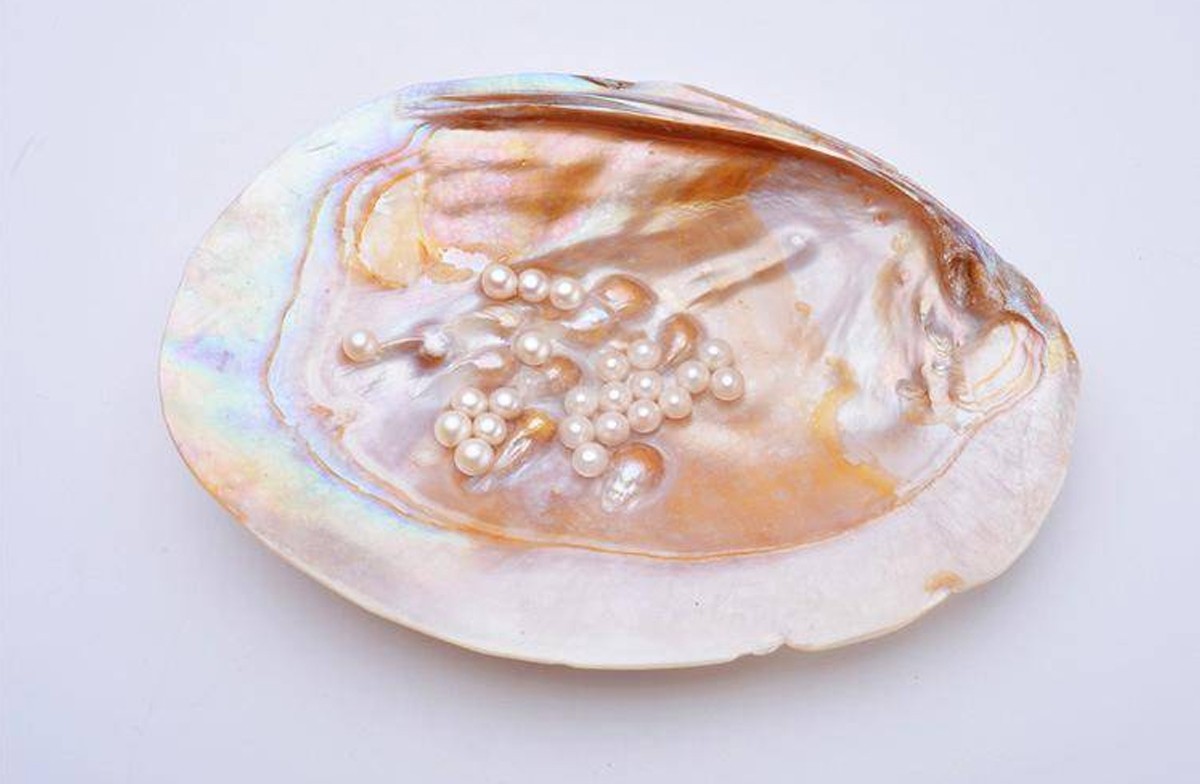Hyriopsis Cumingii Leach
Hyriopsis cumingii Leach is a species of freshwater pearl mussel found in Southeast Asia, particularly in China, Vietnam, and Thailand. It is also commonly known as the triangle pearl mussel or the triangle sail mussel due to its triangular shape and the presence of a sail-like structure on its shell.
This species is of great economic importance as it is one of the primary sources of freshwater pearls in China, where it is extensively cultured for pearl production. It is also considered a keystone species in freshwater ecosystems, playing an important role in maintaining water quality and supporting biodiversity.
Unfortunately, like many other freshwater mussel species, Hyriopsis cumingii is currently threatened by habitat loss, pollution, and over-exploitation. Conservation efforts are underway to protect this species and its habitat, including the establishment of protected areas, stricter regulations on pearl farming and harvesting, and the promotion of sustainable pearl production practices.
In natural health, Hyriopsis cumingii Leach is used for its medicinal properties. The shell of the mussel is the part that is commonly used in natural health.
Hyriopsis cumingii Leach is believed to have a cooling and calming effect on the body and is often used to treat conditions associated with heat and inflammation. It is also believed to have a sedative effect and can be used to treat restlessness, anxiety, and insomnia.
In addition, Hyriopsis cumingii Leach is thought to have a beneficial effect on the respiratory system and is used to treat conditions such as coughs, bronchitis, and asthma. It is also believed to have a diuretic effect and can be used to treat conditions such as edema and urinary tract infections.
Hyriopsis cumingii Leach nutritional benefits
Hyriopsis cumingii Leach, or freshwater pearl mussel, is a nutritious food source that provides several health benefits. Here are some of its nutritional benefits:
- Protein: Freshwater pearl mussels are a good source of protein, containing up to 15-20% protein per 100 grams of edible meat. Protein is essential for building and repairing tissues in the body.
- Minerals: Freshwater pearl mussels are also a rich source of minerals such as calcium, iron, and zinc. Calcium is important for bone health, while iron is important for the formation of red blood cells and zinc is important for the immune system.
- Vitamins: Freshwater pearl mussels also contain vitamins such as vitamin B12, which is important for the nervous system, and vitamin E, which has antioxidant properties.
- Omega-3 fatty acids: Freshwater pearl mussels are a good source of omega-3 fatty acids, which have anti-inflammatory properties and are important for heart health.
In Person With Heshoutang Natural Health Members
With Heshoutang Natural Health Online Members
Fill Out the Questionnaire by yourself
Hyriopsis Cumingii Leach Pharmacology
Hyriopsis cumingii Leach, or freshwater pearl mussel, has been the subject of several pharmacological studies, with researchers investigating its potential medicinal properties. Here are some of the key findings:
- Anti-inflammatory properties: Studies have shown that extracts of freshwater pearl mussel possess anti-inflammatory properties, which may be beneficial for the treatment of inflammatory conditions such as arthritis.
- Antioxidant properties: Freshwater pearl mussel extracts have been found to have antioxidant properties, which can help to protect the body against oxidative stress and reduce the risk of chronic diseases such as cancer and cardiovascular disease.
- Immunomodulatory effects: Studies have shown that freshwater pearl mussel extracts can modulate the immune system, which may have potential applications in the treatment of immune-related disorders.
- Neuroprotective effects: Freshwater pearl mussel extracts have been found to have neuroprotective effects, which may have potential applications in the treatment of neurological conditions such as Alzheimer's disease.
- Anti-tumor effects: Studies have shown that freshwater pearl mussel extracts may have anti-tumor effects, with some researchers investigating their potential use as a complementary therapy for cancer.
When you subscribe to the blog, we will send you an e-mail when there are new updates on the site so you wouldn't miss them.


















Comments